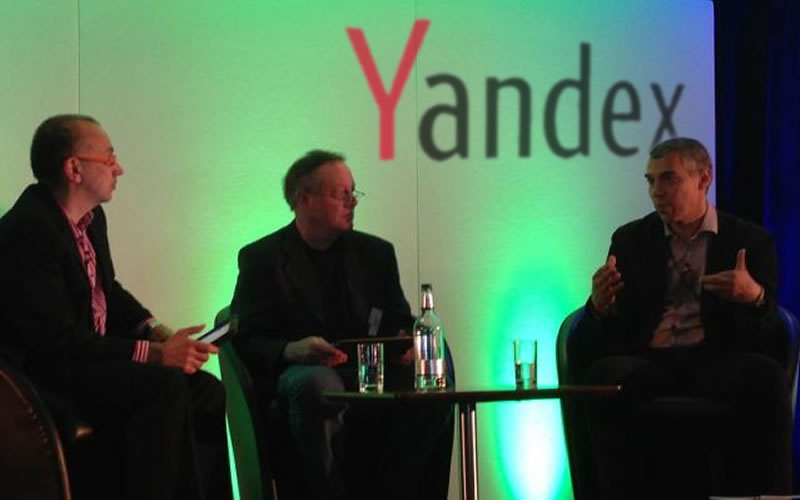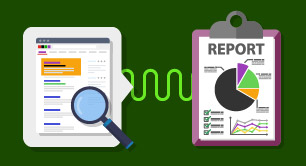The Yahoo! and Microsoft Search Alliance is finally coming to fruition with marketers and advertisers in Europe beginning to feel the effects of the partnership in early 2010.
In advance of his session at the International Search Summit Munich on April 4th, Microsoft’s Cedric Chambaz, gives an insight into the development of the alliance and what it means for search marketers around the world.
Can you just give us a brief overview of what the Yahoo! and Microsoft Search Alliance is?
First it is critical to understand that the Yahoo! and Microsoft partnership is, as it says on the tin, a “Search Alliance”. Not a fusion, not an acquisition… An alliance, limited to search.
As a result of the Yahoo! and Microsoft Search Alliance, Microsoft’s technology will power Yahoo!’s search and search advertising infrastructure, meaning that the search alliance covers algorithmic search (web, image and video through Bing algorithm) and search advertising. Microsoft and Yahoo! will unify their paid search marketplaces, and Microsoft’s search advertising platform, Microsoft Advertising adCenter, will be used for paid search advertising.
The search alliance however does not include any aspects of display advertising, vertical searches or Yahoo! site searches, such as queries on Flickr or Yahoo! News. In these fields, our two companies will continue to compete.
The search alliance offers brands and search agencies a new competitive alternative as the two best converting search engines consolidate their high quality audiences. Practically spoken, advertisers can now promote their business to a larger, highly converting audience of Bing and Yahoo! users, in less time and efforts. This improves productivity and budget efficiencies, especially for resource-constrained advertisers, by allowing them to manage their search campaigns at both search engines from a single platform.
What stage is the roll out at in North America? And what about Europe?
After the natural search algorithm was successfully implemented in Yahoo!’s Search in Northern America in late-August, at end of October we completed another major milestone for the search alliance transition in the U.S. and Canada: Microsoft Advertising adCenter now powers all of the paid search advertisements on Yahoo!’s owned and operated properties and its publisher network. Advertisers operate a single account on adCenter that powers search advertising campaigns across the combined audience of Bing and Yahoo! currently reaching 164 million in the U.S. and 15 million in Canada.[1]
For Europe, we anticipate the organic search transitions for the UK, France, Ireland, Germany, Spain and Italy to begin in the first quarter of 2011, with other European markets following in mid-2011. We expect to begin the paid search transition in the UK, France and Ireland in the second quarter of 2011, with other European markets to start in late 2011 and early 2012. Our goal is to provide a quality transition experience for advertisers in Europe. If we feel that it would improve the overall experience, we may adjust the timing of the organic and paid search transitions.
Is the plan to eventually rollout in all markets? And what are the timescales for reaching Eastern Europe, and Asia?
In addition to the roll-out in Europe early 2011, we expect to start transitioning in further international markets also in early 2011 for selected markets in Asia as well as Latin America, with all global customers and partners expected to be transitioned by early 2012.
What does it mean for organisations that are currently advertising on Yahoo! and/or Bing in Europe? And how will it impact organic rankings in both search engines?
Search advertisers will need to transition their account to the Microsoft Advertising adCenter platform in order to continue showing their adverts on the Yahoo! sites and their partners. In case advertisers don’t have an adCenter account we’ll support them in creating one allowing them to reach Yahoo! traffic once the Yahoo! Search ad serving transition is completed. With a single platform with superior targeting capabilities, they will then save time and effort by managing only one global account for their search marketing campaigns across both search engines.
Once the algorithm for natural search is completed, the organic results displayed on both Yahoo! Search and Bing will be the same with the single difference that each company will continue to own and enrich its individual consumer experience. However, the current organic ranking in Yahoo’s search engine might possibly change once results are powered by Bing as the website ranking will be 100% based on how the Bing algorithm indexes and ranks the relevance of your site for a particular search query. Therefore, we recommend that webmasters ensure that their sites are properly referenced and indexed by the Bing algorithm by them time the transition will be completed. Webmasters can register their websites and sitemaps in the Bing Webmaster tool.
What about those not currently using Yahoo!/Bing – what does the alliance offer them? What benefits will it bring?
Firstly, advertisers will gain access to more highly converting customers in several markets through the combined traffic of Yahoo! Search and Bing. In the UK for instance, the combined Yahoo! Search and Bing audience is 36% more likely to buy online than the average user[2]. Additionally, the Search Alliance reaches users that advertisers won’t be able to reach elsewhere: 5 million unique users use Microsoft and Yahoo! Sites (including Yahoo! Search, Bing, and partners) that don’t use Google in the UK[3].
Secondly, the campaign setup and management will be easier and more time- and therefore cost-efficient as advertisers will have one sales force supporting them as well as a one set of campaigns and keyword structures on a single platform.
Third and primarily what we hear from advertisers: The Search Alliance offers a competitive choice in search, providing advertisers with greater value and efficiency by delivering a higher quality audience and a better conversation rate driving a greater ROI.
And finally, why should people attend the International Search Summit?
The International Search Summit, combined with SMX Munich, is a great opportunity for advertisers and publishers to get their head around the up and coming trends in global search. The global deployment of the Yahoo! and Microsoft Search Alliance is obviously a major evolution in the advertising industry and it is important to get a good understanding of its impact and associated opportunities for your business.
Other speakers at the International Search Summit include Steffen Ehrhardt, Google; Evgeny Lomize, Yandex; Andy Atkins-Krüger, WebCertain; Florian Reisinger, BMW and Thomas de Buhr, YouTube.
View the full agenda and register for the Summit
[1] Source: comScore Core Search (custom), November 2010
[2] Source: Nielsen NetRatings UK, August 2010
[3] Source: comScore qSearch (custom), November 2010.
Gemma Houghton
Latest posts by Gemma Houghton (see all)
- Watch the recording: How to identify and seize growth opportunities in international markets - April 20, 2022
- International marketing recruitment: How to drive global growth amid The Great Resignation - February 23, 2022
- 5 trends to include in your 2022 international digital marketing strategy - December 21, 2021







